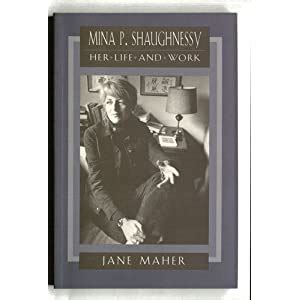A Quote by Mina P. Shaughnessy
From the reader's point of view, punctuation provides a map for one who must otherwise drive blindly past the by-ways, intersections, and detours of a writer's thought.
Related Quotes
One of the things that's important for anybody adapting source material that is primarily a male buddy picture is to find ways to latch on to strong female characters in the piece and bring them to the forefront and celebrate their point of view alongside the men; otherwise, it becomes a sausage party, and it's a singular point of view.
How often I have tried to tell writing students that the first thing a writer must do is love the reader and wish the reader well. The writer must trust the reader to be at least as intelligent as he is. Only in such well wishing and trust, only when the writer feels he is writing a letter to a good friend, only then will the magic happen.
Every reader, as he reads, is actually the reader of himself. The writer's work is only a kind of optical instrument he provides the reader so he can discern what he might never have seen in himself without this book. The reader's recognition in himself of what the book says is the proof of the book's truth.
We must be forewarned that only rarely does a text easily lend itself to the reader's curiosity... the reading of a text is a transaction between the reader and the text, which mediates the encounter between the reader and writer. It is a composition between the reader and the writer in which the reader "rewrites" the text making a determined effort not to betray the author's spirit.
It is easier for the reader to judge, by a thousand times, than for the writer to invent. The writer must summon his Idea out of nowhere, and his characters out of nothing, and catch words as they fly, and nail them to the page. The reader has something to go by and somewhere to start from, given to him freely and with great generosity by the writer. And still the reader feels free to find fault.
The characters within a book were, from a certain point of view, identical on some fundamental level ? there weren't any images of them, no physical tangibility whatsoever. They were pictures in the reader's head, constructs of imagination and ideas, given shape by the writer's work and skill and the reader's imagination. Parents, of a sort.
Limited points of view let the writer dispense - and the reader gather - information from various corners of the story. It all becomes a kind of dance, with the writer guiding the reader through the various twists and turns. The challenge is keeping readers in step, while still managing to surprise.
Now, as a reader, you shouldn't feel the decisions the writer makes about this DNA, or it would be boring beyond belief. But, as a writer, you're struggling to make these decisions. What should the title be? What's the first line? The point of view? And the struggle with the decisions is because you're trying to figure out WHAT IS THE NOVEL, WHAT IS THE NOVEL?
The understanding between a non-technical writer and his reader is that he shall talk more or less like a human being and not like an Act of Parliament. I take it that the aim of such books must be to convey exact thought in inexact language... he can never succeed without the co-operation of the reader.

































